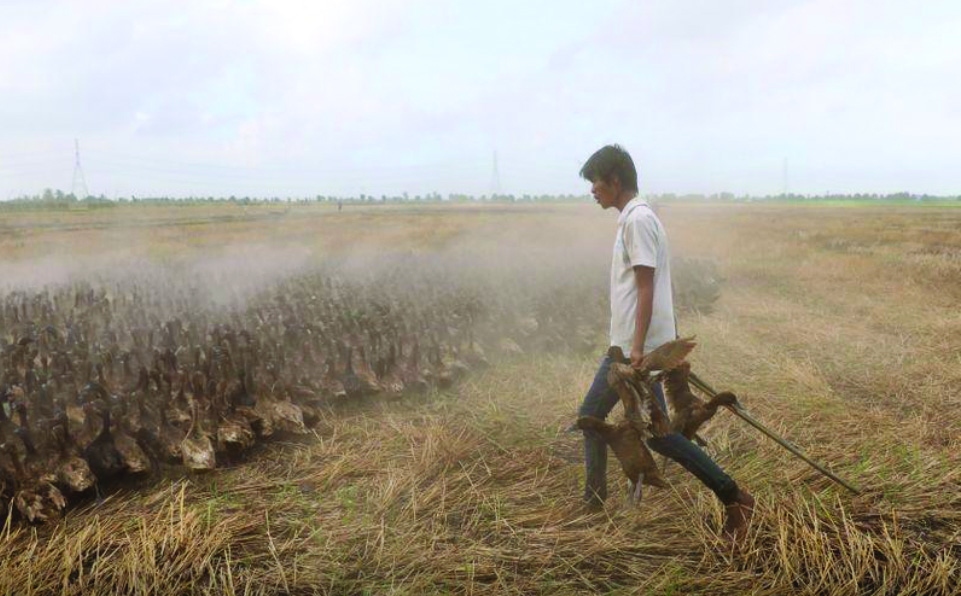

NAKHON PATHOM, Thailand: After harvesting the rice crop in this part of central Thailand, a flock of around 10,000 ducks is released from a pen and instinctively stream towards the flooded fields to devour pests such as snails hiding in the rice stubble.
This way of raising ducks in rice-growing areas has long been a tradition in the area and other parts of the region. Thais call it “ped lai thoong”, which means “field chasing ducks”.
The Khaki Campbell ducks, a British breed, are brought to the fields after 20 days in nursery and will be raised on the move for the next few months.

After roaming free for about five months, they are returned to the farm to produce eggs for up to three years.
“The benefit (for the breeder) is that we reduce costs to feed the ducks,” said Apiwat Chalermklin, 34, a breeder who took over the business from his father.
“And in return, for the rice farmer the ducks help eat pests from the farm and the farmers can reduce the use of chemicals and pesticides.”
On Sunday, Apiwat’s ducks appear to be finding plenty of pests such as snails and insects to feed on during their field-cleaning job that he expects to last a week in this 15 acre (67 hectares) farm.
Apiwat has four flocks of ducks that move around different rice fields in Nakhon Pathom province where farmers typically cultivate three rice crops every year.
“They help eat golden apple snails and remains of unwanted rice husks that drop into the field from last harvest. The ducks also step on the rice stubble to flatten the ground and make it easier to plough,” said farmer Prang Sipipat.
For now, farmers say the system works well for both the duck raiser and rice grower, but even though there has not been drought in Nakhon Pathom they are worried about the threat.
Thailand, which is the world’s second-biggest rice exporter, faces a prolonged drought affecting many growing areas this year. — Reuters
Oman Observer is now on the WhatsApp channel. Click here



